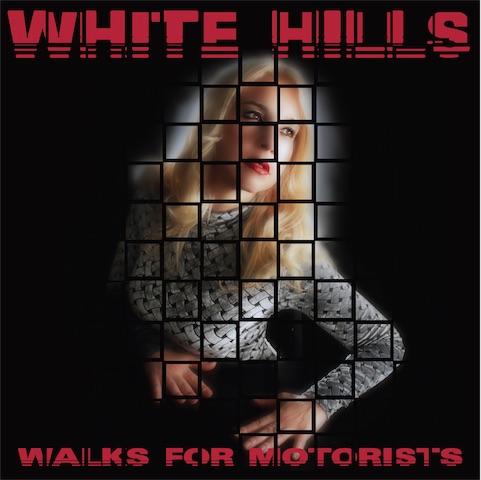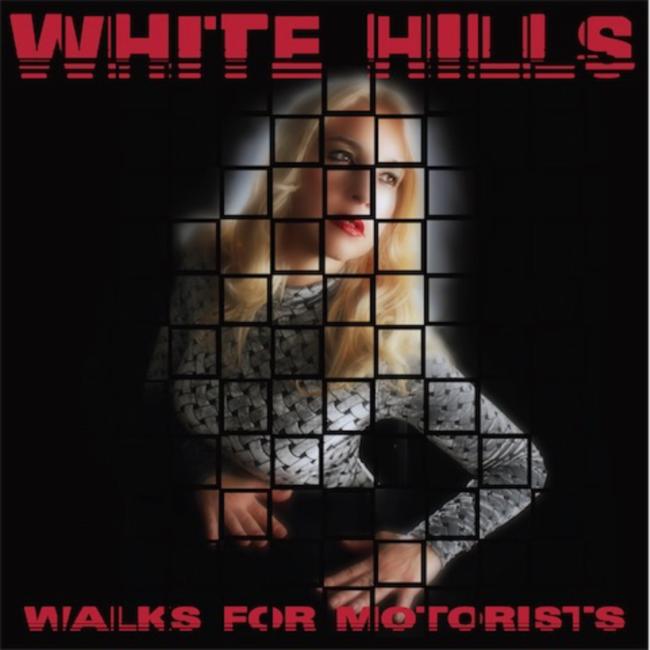
Good old Space Rock: for when you need songs to last ten minutes but you’re not in the mood for all that proggy, time signature business. When you need to rock out but still wanna feel mellow, man. When you want to think about the vastness and complexity of the universe but you aren’t really up for much thinking. The genre provides so much and demands little in return. Zone out under your headphones at home, or wig out in the front row behind your fringe, head shaking from side to side, rib cage secretly on the verge of collapse from the overwhelming volume. Incredible.
White Hills have been nailing this Space Rock malarkey for 10 years via a relentless release schedule and live shows brimming over with power and the aforementioned volume. They know just what to plunder from the genre to look the part, too: flashing lights, patterned shirts, face paint, leather, fog machine. But it’s the noise that they do best. Simple riff motifs overlain with churning synth squelches or a juggernaut of guitar swathes, pedals set to cathedral. You can be sure that whoever the NYC duo is joined by on drums is going to be beating the hell out of them; nevertheless those drums will inevitably be trumped by guitars.
Wait though, that isn’t White Hills all told. Sure you’ve got ‘Lead the Way’ clocking in close to nine minutes and ticking every box on the Loop checklist circa A Gilded Eternity. But it’s followed directly by ‘I, Nomad’, a sublime hypnotic synth swirl over a gently syncopated rhythm more reminiscent of Orbital than Gong. Elsewhere ‘Automated City’ reveals a corrupt world where Primal Scream ply their turn-of-the-century Electroclash.
No, Walks for Motorists isn’t just bashing out the Space Rock formula a bit louder than last time, rather it finds White Hills admirably dissatisfied with their lot. They are pushing themselves. They want to know what they can do in shorter bursts relying less on effects, getting a bit funky on the rhythms and pushing the vocals into the spotlight at the head of the mix. They have exerted themselves greatly to make the recordings sound incredible. Occasionally though, this glistening presentation leaves them uncomfortably exposed. The simplicity of a riff can instead seem half-baked, upfront vocals revealing lyrics less thought provoking than might have been imagined when they were buried in the uproar.
White Hills have a reputation they could rest upon. Instead they are challenging themselves and their audience with tributaries to the raging river of their signature sound. They are interesting asides but sometimes it just has to be ‘We Are What You Are’: a few vague, non-committal lyrics suggesting cosmic knowing, a scuzzy, crashing, repetitive racket and a screeching, wailing solo. Jonathan Wallace






